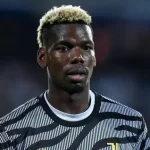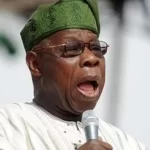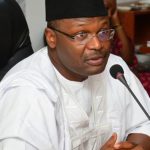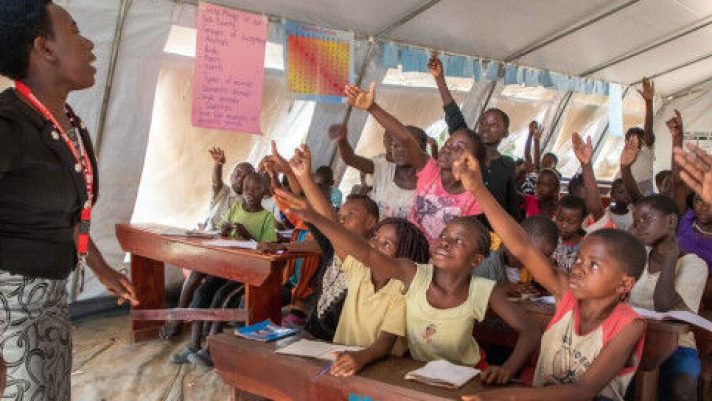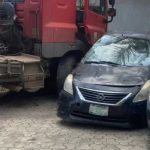By Iyabo Lawal
Education institutions, in most parts of the world, are shifting from doctrinal curriculum to a curriculum that balances doctrines with skills, with emphasis on cross-disciplinary skills that remain relevant to life, whether a person practises trade learnt in school or not.
Sadly, Nigeria is not yet in the league of nations that have embraced the hybrid curriculum. Over the years, basic and secondary education sub-sectors have been challenged by poor infrastructure and inadequate qualified teachers, among others, leading to poor enrollment and poor learning outcomes.
Stakeholders blamed the curriculum used in schools as responsible for the poor quality of learning due to its outdated contents. Currently, the curriculum in use is devoid of practical skills, critical thinking, problem-solving, digital literacy, financial education and environmental sustainability.
Stakeholders are worried that graduates of secondary education in Nigeria lack employable and requisite skills to function well in the society, making it necessary to import artisans and other skilled workers into the country from neighbouring countries.
Although the Federal Government had approved the mandatory inclusion of trade subjects in secondary school curriculum as part of efforts to bridge the skill gap, most of the schools in the country lack competent teachers and instructional materials for the effective handling of the 37 trade subjects.
Erstwhile Executive Secretary of National Senior Secondary Education Commission (NSSEC), Dr. Benjamin Abakpa, said the Federal Government was in the process of reviewing curricula being used for teaching and learning in secondary schools in the country.
Founder, Afe Babalola University, Ado Ekiti (ABUAD), Chief Afe Babalola, had also described the curriculum being used in schools as outdated, lamenting several attempts at reviewing them over the years have not achieved desired results.
For example, he noted that Nigeria needs graduates, who are self-reliant and could take initiatives in globally competitive crafts and inventions, but students of primary and secondary schools leave school without having an idea on how what they learnt in school will apply in practical life.
Babalola noted that in many countries, curriculum review takes place every five years. According to him, it is not enough to have a curriculum that is in touch with developmental realities of a country or even the global world; it must contain practical skills that guarantee self-reliance by those who studied subjects.
According to the United Nations Educational, Scientific and Cultural Organisation (UNESCO), the present curriculum is outdated and overloaded, and incapable of meeting present-day realities.
The agency emphasised Nigeria’s need for a school curriculum that is relevant to its needs. The organisation noted that the educational system and schools have a responsibility to children and the society to prepare learners for the world, which is why a standard-based curriculum is important.
UNESCO’s Director for the International Bureau of Education (IBE), Mr. Ydo Yao, described the curriculum as overloaded, outdated and short of present-day development, hence the need for review. He said the need for this action is evident in the triple crises of equity and inclusion, quality and relevance of education.
Yao noted that part of the commitments toward addressing these crises is making curriculum relevant for assuring quality in education and ensuring that values, knowledge and skills needed to thrive in the present day complex world are transmitted through the education system.
He said: “Curriculum is a central and irreplaceable component of any educational policy and pivotal in the transformation of education. To achieve Sustainable Development Goal (SDG) 4, which seeks to ‘ensure equal access to quality education for all and promote lifelong learning opportunities, there must be a rethinking of curriculum contents and pedagogical approaches.
According to him, no education sector can be transformed if its curricula are not transformed.
“So, when you talk about education, you are talking about content, programmes and learning. So, if you want to transform education and you don’t transform what is at the core of it, which is the learning, content and programmes, your transformation has no meaning,” he said.
The Federal Ministry of Education had, a few years ago, stressed the need to revise and upgrade the curriculum in line with current needs and global best practices.
Similarly, stakeholders held that critical thinking, entrepreneurship and lifelong skills should be incorporated into the curricula to equip the youths.
An educationist, Dr. Adedayo Adegunju, faulted the single national policy on education in the country, describing it as ineffective.
“The problem is that there is only one national policy on education. How can Zamfara and Ogun be running the same type of education curricula? How can Taraba or Yobe be running the same with Delta or Imo? Taraba, Zamfara and Yobe are about 60 years behind Ogun, Delta and Imo,” he said.
He argued that the policy should allow each state to have its own policy on education, to address its own peculiarities. He suggested that the curriculum should be such that Yobe would have its education policy, Zamfara, and Imo would all have their education policies.
On her part, Mrs. Adetokunbo Williams said the limited focus on technology and digital literacy in basic and secondary school curriculum was a major challenge.
While supporting the call for curriculum review, Williams said it is imperative to ensure that education remains relevant, prepares students for the future, promotes holistic development, fosters critical thinking, embraces inclusivity, and also supports the professional growth of teachers.
By addressing the missing aspects in the curriculum, the educationist said Nigeria could better prepare its students to navigate the complexities of the modern world and contribute meaningfully to the society.
To make the curriculum more relevant, she said certain steps could be taken, like stakeholder involvement, needs assessment, flexibility and adaptability, practical skills integration, technology integration, interdisciplinary approach, inclusivity, continuous feedback and evaluation.
“By implementing these steps, the curriculum can be made more relevant, responsive and effective in preparing Nigerian students for the challenges and opportunities of the 21st century,” she said.
A Professor of Adult Education, Deinde Opeoluwani, said the present curriculum could be redesigned to ameliorate socio-political and socio-economic problems facing the nation by making it functional, innovative and creative.
He stated that 21st century life skills should be embedded in topics and lessons delivered by all subject teachers, while practical, skills-based, project-based and collaborative tasks should be emphasised in the curriculum. This, he said, would reduce the abstract nature of lessons and make learners to acquire skills, apply skills on a consistent basis and make learning more real.
“The global goals and Education for Sustainable Development should be incorporated into every subject taught in the lower-basic and upper-basic schools. That way, children will be more aware of local and global problems and conditioned to become critical thinkers and problem solvers,” he said.
“In English Language, for instance, skills in writing emails, memos, and other forms of formal communication should be instilled. Unless these are done, clamours for a curriculum review that meet global standards, prepare and empower students for the future world of work would not abate,” he said.
Former Minister of State for Education, Goodluck Opiah, said since the curriculum is dynamic, opportunities for capacity building on curriculum development and implementation should be regular to keep abreast with new knowledge and strategies.
“We recognise the fundamental role of curriculum in the drive for the attainment of globally agreed goals and country-specific aspirations. It remains the singular instrument capable of transforming the human capital base of a nation for effective contribution to nation-building and development,” he said.
Executive Secretary, Nigerian Educational Research and Development Council (NERDC), Prof. Ismail Junaidu, said there was the need to restructure, realign and revise the present curriculum, introduced since 2011, to meet current global developmental challenges.
“Ten years after the introduction of the current senior secondary education curriculum, you will agree with me that times have changed, the world has moved on, new ideas have been created, knowledge has advanced, new goals have been set, new skills have emerged, and new technologies have been developed.
“The only way we can catch up with these changes and create opportunities for our children to acquire new skills and competencies is to provide them with requisite learning experiences through curriculum review, “ he said.
According to him, the goal of the council is not only to develop a curriculum that meets the needs of the present but also “one that will create the future that we desire as a people.”
Junaidu said the council was committed to bringing change to the Nigerian education sector for global competitiveness. Already, he said NERDC has strengthened the curricula with knowledge and skills, and online safety, among others. He added that the council has also provided teachers and education managers with resource materials needed to implement the review seamlessly.
Source: The Guardian


